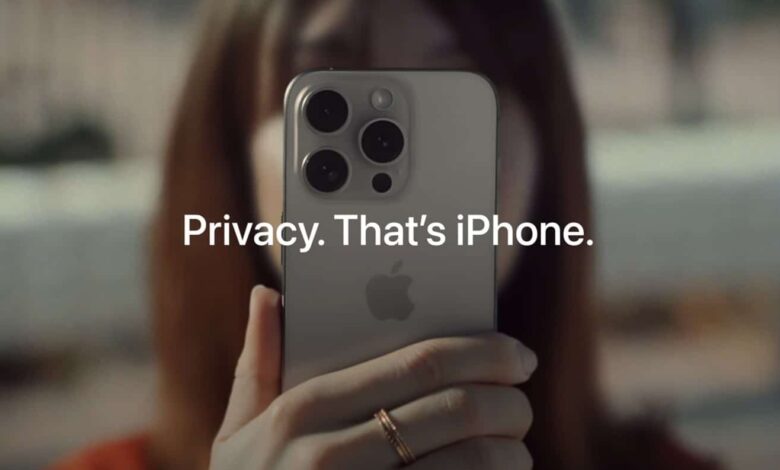Apple’s New Safari Ad Takes a Dig at Rivals, Especially Google Chrome

- Apple released two ads for its privacy-focused browser Safari—a video ad and a billboard ad—and both of them are targeted toward the privacy-invasive nature of its competitors, especially Google Chrome.
- The underlying message in both ads is that other browsers track your activities, while Safari keeps your browsing private.
- The ads aren’t wrong, either. While Safari comes with excellent privacy settings, Google has openly admitted to collecting user data, even in the incognito mode.

After its infamous ‘Crush’ ad for the new iPad Pro, Apple is back with yet another spicy advertisement. The company’s new billboard ad for its privacy-focused browser, Safari, took a dig at its rivals, including Google Chrome, which is easily its biggest competition.
So, what’s this Apple ad everyone’s talking about? Basically, there’s a huge billboard at Apple’s hometown, San Francisco, that reads “Safari. A browser that’s actually private.”
It’s pretty easy to figure out what this tagline is hinting at. In simple words, it’s saying Safari’s competitors do not care about your privacy.
It’s well worth noting that there’s another new ad titled “Flock: Privacy on iPhone” that creatively lays out how browsers track users and their activities.
It shows a large flock of CCTV cameras flying over the users’ heads and monitoring everything they do on their phones. Next, the users are seen switching to Safari and as soon as they do, the CCTV blows up in the air, signifying that Safari doesn’t track users.
Is Google Chrome Really Tracking Your Activities?
If I were to put it plainly, yes, Google Chrome tracks user activity. In fact, the company is not even trying to hide it anymore. Earlier this year, it revealed that it collects users’ data, even if they’re browsing in incognito mode. Then, that data is used to serve them targeted ads.
Although there has been some talk about removing cookies, they will be here at least until 2025. Moreover, even if they’re removed, they will be replaced with some form of AI search across user search histories, which, in all likelihood, isn’t going to be privacy-friendly, either.
We can consider Microsoft’s Windows Recall and Google’s Overviews features loose examples of what AI in search can look like.
Completely doing away with data collection is impossible for Google, at least for now. For starters, data collection is, in so many words, its golden goose.
Given its massive user base (almost 3 billion users), companies from different industries rely on Google to know their customers better—and they certainly wouldn’t like it to stop collecting data all of a sudden, especially not without an alternative.
How Is Safari Privacy-Friendly?
Apple’s Safari, when compared to Google Chrome, is undoubtedly different. Mind you, it’s not perfect and it can also collect your data, but at the same time, it comes with better settings that help you protect your privacy. Also:
- Safari uses machine learning to block search engines and third-party apps from monitoring users on Apple devices.
- It removes unique trackers from URLs in private browsing mode and hides your device’s IP address to protect you from known trackers.
- Last but not least, Safari also prevents web extension apps from accessing the user’s browsing data.
 Our Editorial Process
Our Editorial Process
The Tech Report editorial policy is centered on providing helpful, accurate content that offers real value to our readers. We only work with experienced writers who have specific knowledge in the topics they cover, including latest developments in technology, online privacy, cryptocurrencies, software, and more. Our editorial policy ensures that each topic is researched and curated by our in-house editors. We maintain rigorous journalistic standards, and every article is 100% written by real authors.


